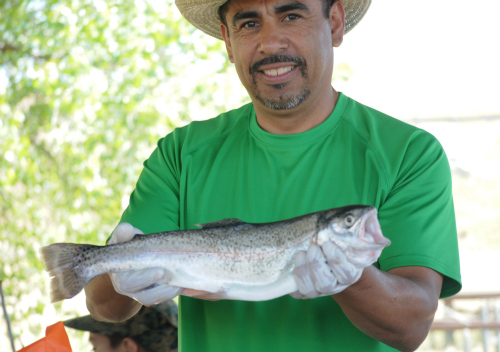Anybody heading to a new country will surely see the value in learning the language, but even with perfect grammar and a burgeoning vocabulary there will be phrases that just don’t make sense.
Don’t worry about your linguistic prowess; these peculiar proverbs are more about learning the culture than the language. It takes time to learn slang, swear words and the salacious gossip that your language teachers are too proper to teach.Only Cubans know what use a yucca plant and your mother-in-law are underground. What do Egyptians find so soothing about a camel’s gurgling? Why do the Chinese feel the need to name a dog before eating it? These remain mysteries, but here we examine some of the most common, yet truly bizarre proverbs.
A good proverb isn’t just a clichéd turn of phrase; it’s a small piece of advice to be remembered. We’ve scoured the globe to find some of the more polished pearls of wisdom: odd as they are, we can all learn a little something from them.
10. Throw a fortunate man in the Nile and he will come up with fish in his mouth. – Egypt
This turn of phrase from Egypt supposes that a lucky man vindictively pushed into a stinking river can make the best of it, turning the unexpected dip into a productive fishing trip.
Perhaps it’s best not to flaunt your good fortune in Egypt; lottery winners may find themselves taking an unscheduled swim in order to test this fishy proverb.
Taking a second look at this adage it may also be a case for making one’s own luck. Instead of pushing the fortunate man in the river give him a lemon. He may make lemonade, in which case it may be that he simply turns setbacks to his own advantage rather than being the passive recipient of good fortune.
Slightly less poetic is “luck is the dividend of sweat,” Raymond Albert Kroc’s philosophy on hard work, something the man behind McDonald’s knew something about.
Every culture has it own superstitions about luck with lucky charms, lucky cats and helpful spirits proving popular. The Irish claim to receive more than their fair share of good luck and sailors are especially wary of bad luck, but this Egyptian proverb does show one thing that is common across cultures: some guys do have all the luck.
9. To spill the beans – Greece

© Tom Fassbender
This isn’t about being careless with a tin of Heinz; this is about letting a secret slip out.
Ancient Greece developed the first democracy, with elected representatives sitting in the Assembly to vote on the laws of the day. But the good men of Athens didn’t vote with a show of hands. Instead they used an elegantly simple method to give a secret ballot.
Each elected official would be issued with two beans, one black for a ‘nay’ vote and a white ‘aye’ bean. Every Assembly member would then drop the appropriate bean into the ballot, seen by all, but with their exact vote being a mystery. At the end of the proceedings the urn holding all the votes was up-ended, pouring the beans on the floor to reveal the result.
The concept travelled down through the ages and across the continents, popping up as a proverb in several languages and being alluded to in Edward Hellowes’ Guevara’s Familiar epistles of 1574. The phrase became a cliché with frequent use in American newspapers of common usage in the early 20th century.
8. Lying a little and stealing a little will get you nicely through the world. – Slovenia

© Jennifer Afalla
You have to wonder about someone who gives this kind of advice. Would you trust a self-confessed liar and thief to give you sound life advice?
On the other hand, we can’t argue with the ‘rules are made to be broken’ sense of mischief in the proverb; sometimes we can achieve more by bending the rules. After all, if nobody gets hurt, what’s the problem?
But this questionable quote comes remarkably close to endorsing theft and perjury as a way of life. It’s a long way from “crime never pays” and much closer to the Russian proverb “it’s only a crime if you get caught.”
We still have some moral question marks about this idiom, but lots of cultures embrace the concept of the ‘little white lie’ or robbing from the rich to give to the poor. According to some, ‘the law is an ass’ and more good can be done by breaking rules than following them.
If you do decide to take this proverb to heart, remember not to get caught.
7. Cat got your tongue? – Middle East and UK

© Iamlilbub
Another idiom from the ancient world, or possibly a little closer to home. When someone is struck mute with guilt, or remaining tight lipped to avoid incriminating themselves, a gloating inquisitor might utter this quip to imply the target’s guilt.
This lends credence to the theory that the saying comes from the ancient holy lands, where suspected blasphemers would have their tongues ripped out and fed to lions. The punishment is recorded up to medieval times.
An alternate theory relates to the harsh punishment doled out by the Royal Navy to its unruly sailors. Misbehaving seamen would be flogged for their misdemeanours, with a vicious multi-headed whip known as the Cat o’ Nine Tails. Those beaten into submission would often be left so battered as to be unable to speak.
Many phrases that found common usage in English originated from the Royal Navy or were brought to home shores from far away lands by returning sailors. Next time you feel ‘under the weather’ think of men huddling the lowest point in a ship’s hold to avoid the motion of a rocking ship in rough seas to alleviate seasickness.
There may be experts out there who know for sure the origin of this feline-themed phrase….but they remain tight lipped about it.
6. A house without a dog is the house of a scoundrel – Portugal

© Kenny Louie
Moving on from the tongue-eating cats, this pooch inspired proverb suggests you shouldn’t beware of the dog on the street as much as of the house without the dog. Which is probably cold comfort to postmen everywhere.
But why does the phrase put so much stock in dog ownership? What does it tell us about the dog-less people of the world?
Firstly, can you trust a man who can’t love an adorable puppy? If your neighbour doesn’t go weak at the knees for a wagging tail and a pair of floppy ears, there must be something wrong with him.
Secondly, dogs require care and attention. Cats are much more independent and can fend for themselves if their master is away philandering. Anyone who can’t commit themselves to a dog is unlikely to be a trustworthy companion.
It’s not that the Portuguese trust the dogs themselves. Two other proverbs suggest the national psyche see pooches as not only manipulative, “the dog wags its tail, not for you, but for your bread”, but also plotting their owners’ downfall, “beware of silent dogs and still waters.”
So when asked if you are more of a cat or a dog person, think about your answer carefully – it may reveal more than you expect.
5. Dumplings are better than cherry blossoms – Japan

© Lai Seet Ying
World famous for the delicate beauty of its blossoming cherry trees, Japan seems to favour the humble dumpling in this gastronomic adage.
This lesson in practical values praises the steamed snack’s delicious and nutritious qualities over the aesthetic appeal of the blossom.
4. The camel driver has his plans, the camel has his – Morocco

© Sammy Six
Wise words from Morocco’s desert-dwelling Berbers on the need for teamwork and communication. Anyone who has tried driving while their significant other navigates can testify to how a normally harmonious partnership can quickly become fraught.
We also should consider who really is in charge in this situation: the camel driver might hold the reins, but if a half tonne camel disagrees on the route there is little the passenger can do apart from hold on and hope for the best. Which is a good lesson to remember for anyone who thinks they are in charge of any given situation.
This could easily be updated to explain why so many drivers argue with their sat-nav systems, but perhaps it wouldn’t have quite the same ring to it.
3. Get the cow off the ice – Germany

© B3D_
Apparently this phrase relates to surviving a dangerous situation. Although similar in meaning to ‘dodge a bullet’, the imagery demands slightly more imagination in order to be understood.
There are some questions raised about how the cow got onto the ice in the first place, and why didn’t the farmer keep it in a nice warm barn? It’s also worth considering just how cold it must be for a river to freeze solid enough to support the weight of a fully grown bovine escapee.
It’s also interesting to note that the phrase appears across Scandinavia as ‘there is no cow on the ice’, suggesting that there is no danger so we can all calm down. Is this because the Germans have already done the hard work of rescuing the cow?
The phrase has been adopted as a nickname for a giant icebreaking research vessel. Germany’s 12,000 tonne RV Polarstern (Pole Star) gracefully ploughs through the Antarctic ice to give safe passage to other ships. Sadly though this noble task has earned the mighty vessel the ignoble moniker of ‘RV Cowpusher’.
2. To poop on your leg – Norway

© Brosen
This is one that crops up regularly in Norwegian sports reporting. If a footballer misses an easy goal, he pooped on his leg. When slalom skiiers tumble, they are said to have had a messy mishap. If you leave your application letter for a new job somewhere your current boss can find it, you definitely… you get the idea.
So popular is this scatological saying that it appears in newspaper headlines without ever causing a stink. Most Norwegians don’t seem to be bothered by the unpleasant mental imagery conjured by the phrase, instead it’s just a normal part of their vocabulary.
The origin of this phrase shouldn’t need much more explaining other than to say that sometimes we all make simple mistakes, some of which have very unpleasant consequences indeed.
1. Don’t use a hatchet to remove a fly from your friend’s forehead. – China

© Andrew E Russell
A simple, yet horrifically vivid lesson in moderation. One dreads to think of this phrase being the product of first-hand experience.
Let’s suppose that your friend really does have a fly perched upon their head. A simple wave of the hand would shift the unwelcome passenger, at most a quick tap with a rolled up newspaper would do away with the critter (warn your friend before you hit them).
It really would be overkill to wail in on the bug, and your unfortunate friend, with a collection of workshop tools.
While we should praise enthusiasm for a task and the keenness with which some people go about their work, it’s always wise to exercise caution. ‘Look before you leap’ counsels you to think about the consequences of hitting your friend with a hatchet. While ‘good things come to those who wait’ suggests the fly is going to move on soon anyway, so enjoy your friend looking silly in the meantime.
As ridiculously obvious as the proverb seems at first glance, it serves the same purpose as printing warnings about hot liquids on the side of coffee cups.
Perhaps the biggest lesson to learn from this ancient saying is that however developed we believe our society to be, there is still an impressive capacity for stupidity.
What are your favourite sayings from around the world? Have you learned any local adages since moving to your new country? Let us know in the comments!
Article by Andy Scofield

